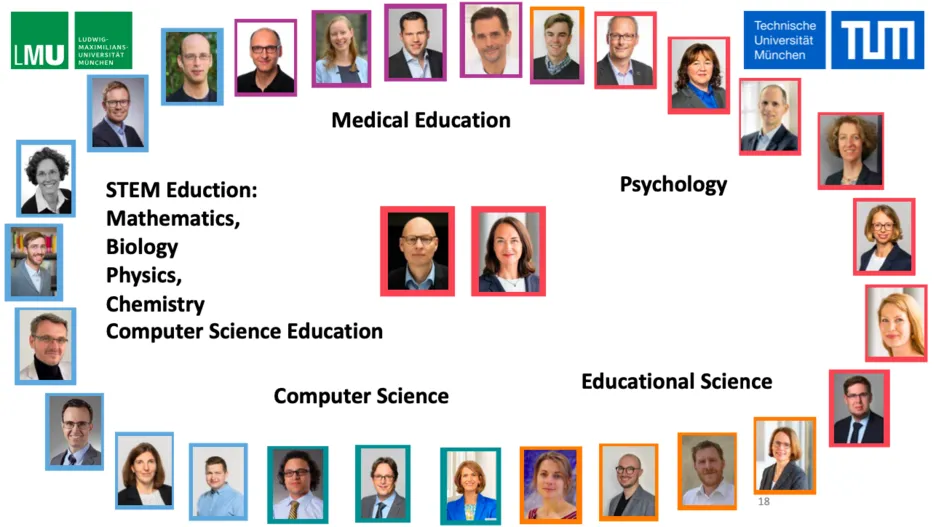Sharp Initiative
Simulation-based learning in higher education:
Advancing research on process diagnostics and personalised interventions (SHARP)

Digital transformation is profoundly changing people’s lives. In the world of work, this comes with new demands concerning basic cultural techniques, general education, cross-disciplinary skills and profession-specific skills. Skills such as analysis, collaboration and problem solving are considered 21st-century skills that are increasingly needed in many professional fields. Simulations have proven to be effective learning environments for these professional skills in low-risk and complexity-reduced contexts in higher education. Simultaneously, students attend higher education with increasingly heterogeneous prerequisites. To optimally support their acquisition of knowledge and skills, the personalisation of learning opportunities corresponding with individual needs seems essential. Educational research offers robust evidence on the design of effective simulations. However, fundamental research on personalising simulation-based learning is lacking.
The central goal of the Sharp Initiative is to identify conditions for the successful personalisation of learning with simulations in higher education and the derivation of design principles. The following questions guide this research: What effects do the personalised design features of simulations – especially scaffolding and feedback – have on learning processes, as well as professional diagnostic and intervention skills? To what extent – and how – can learner characteristics and learning processes be utilised as foundations of personalisation? What are prerequisites on the part of university teachers and institutional preconditions for the effective use of personalised simulations in higher education? By employing a joint conceptual framework, the Sharp Initiative facilitates the collaboration of educational researchers from psychology and educational science, as well as from biology, chemistry, computer science, mathematics, physics and medical education, who are supported by colleagues from the social data sciences in implementing technological measures of personalisation. Combining these disciplines into one research initiative enables the testing of hypotheses on domain specificity and replicability across domains.
Contact
Contact speaker: Prof. Dr. Frank Fischer, Ludwig-Maximilians-Universität München
Leopoldstrasse 13, D-80802 München, Raum 3412, Telefon: +49 (0)89-2180-5146
E-Mail: frank.fischer@psy.lmu.de
Deputy speaker: Prof. Dr. Tina Seidel, Technische Universität München
Marsstraße 20-22, D-80335 München, Raum 424 ,Telefon: +49 (0)89-28925114
E-Mail: tina.seidel@tum.de
Coordinator: Christian Scheibenzuber, M.A., Ludwig-Maximilians-Universität München
Leopoldstrasse 13, D-80802 München, Raum 1306, Telefon: +49 (0)89-2180-5956
E-Mail: c.scheibenzuber@edu.lmu.de